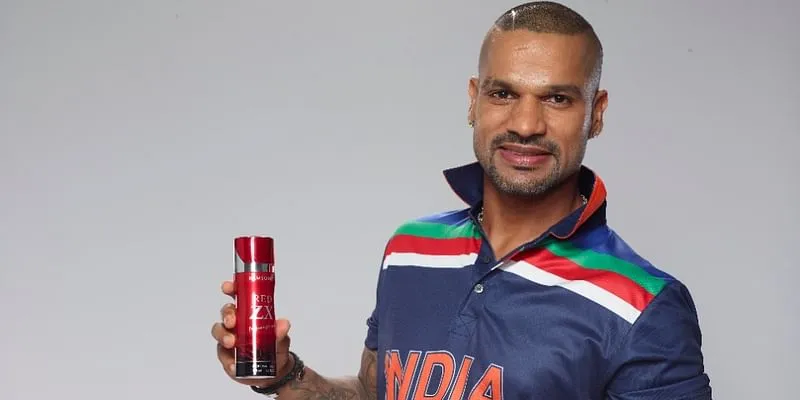A family business with Rs 100 Cr turnover: the story of Ramsons Perfumes
Ramsons Perfumes was started in 1984 in Mumbai to make perfumes available and affordable to the masses. The homegrown brand closed FY21 with Rs 100 crore turnover and is aiming for sustained expansion.
Perfumes have been synonymous with luxury in India for long, with European fragrances dominating the market. Given the following they have, the few national players seem to have been left out in the cold. Despite providing quality products at affordable prices!
Things are changing now as the disposable income of people increases along with the number of made in India offerings.
Despite the Indian perfume market growing at around 15 percent each year, Sanjeev Pandey, a second-generation entrepreneur and Director of Mumbai-based Ramsons Perfumes, says the fragrance market is still at a nascent stage in India.
In 1984, Sanjeev’s father Ramesh Pandey started a small perfume business in Mumbai to make quality perfumes available in India at affordable prices.
“My father was working with Birla Group. That time, the demand for the perfume existed but there were only a few local players. Perfume was considered a premium item, and there were limited customers who used foreign brands. This was the gap that our father wanted to fill, and he — along with his brothers — started Ramsons Perfumes,” Sanjeev says.
The idea was simple: to make perfumes affordable so people from the middle-income group could also enjoy this “luxury” item.
In the beginning
In the initial days, Ramsons sourced perfumes from local manufacturers for reselling. In the mid-90s, the founder started an in-house production unit.
Fast forward 38 years, and Ramsons Perfumes is now a Rs 100 crore turnover family business with an omnichannel presence.
Until the mid-90s, Ramsons Perfumes was operating out of Mumbai and other nearby areas.
Sanjeev says his father was trying to foray into other states through distribution channels but the pace picked up when the second generation entered the business.
“We are seven brothers, including my cousins, who are handling the business. We are heading different operations and have taken Ramsons Perfumes to new heights under the leadership of our eldest brother Vrijesh Pandey,” he says.
When Sanjeev joined the business in 2009, Ramsons’ turnover was Rs 1 crore. Since then, it has registered about 30-40 percent growth per year, and he claims that the company recorded a turnover of Rs 100 crore in FY21.
The company operates in an omnichannel model – it is present offline through general trade and in the online medium through ecommerce portals like Amazon, Nykaa, BigBasket, and others.
Sanjeev says that Ramsons Perfumes is one of the top selling brands on Nykaa.
The reason behind the consecutive year-on-year growth lies in the backward integration, which Sanjeev says they adopted early on in their business model.
“The biggest cost of doing business is manufacturing and packaging. We backward-integrated both of these processes, which helped us easily scale our operations and grow. In the last few years, the increasing disposable income has led to a rise in demand for perfume, which gave us an advantage,” Sanjeev tells SMBStory.
Ramsons Perfumes source majority of the raw materials locally except for a few fragrances, which are imported from Europe. The brand has 120 SKUs and also deals in air fresheners and sanitisers (launched amid the pandemic in 2020).

Shikhar Dhawan endorsing Ramsons Perfumes
Evolution of India’s perfume industry
Fragrance products in the form of perfumes, colognes, and deodorants have gained prominence in recent years.
According to a Research and Markets report, the fragrance market in India is anticipated to reach Rs 139.44 billion by 2024, expanding at a compound annual growth rate (CAGR) of ~15.93 percent during the forecast period, from its 2019 value of Rs 66.58 billion.
Sanjeev says Ramsons Perfumes has a 10 percent market share in India, competing with the likes of Fogg and Titan Skinn. The range for Ramsons perfumes starters from Rs 175 and goes up to Rs 800. The company is working on a premium range that will cost around Rs 1,500.
“We are dealing in the world of synthetic perfume where a fragrance is a cocktail of various fragrances, and people love that,” Sanjeev says.
When asked how Ramsons Perfume is staying relevant in the market amid growing concerns regarding chemicals and as more people turn to natural fragrances and DIY perfumes, he says perfumes are categorised into deodorants, colognes, UDT/EDT, and attars.
Deodorants contain only 2.5 percent of the fragrance and attar range between 25 to 100 percent fragrance which is why attars are expensive and so the perfumes like EDT and UDT.
He says the demand for natural fragrances is by very niche customers, as the mass market is “yet to open for perfumes”. Thus, making perfumes available in an affordable range would be their core strategy to stay relevant in the market.
Challenges and the way forward
Sanjeev says one of the biggest challenges for India’s perfume industry in India is the lack of exposure, adding that this is likely to change with the rising demand for perfume.
Ramsons Perfume has a very strict marketing budget and has roped in cricketer Shikhar Dhawan for endorsements. With the recent launch of women’s fragrances, it has also increased its marketing initiatives and is planning to sign up actress Yami Gautam Dhar.
The brand is also an associate sponsor for MTV Roadies.
Ramsons Perfume has a manufacturing capacity of one lakh pieces a day at present.
Sanjeev says the company has recently set up a new manufacturing facility in Ambernath, and has drawn up a rigorous-scaling up plan for the next two years.
“Ramsons Perfume is eyeing Rs 200 crore turnover by next year.”
Edited by Teja Lele









